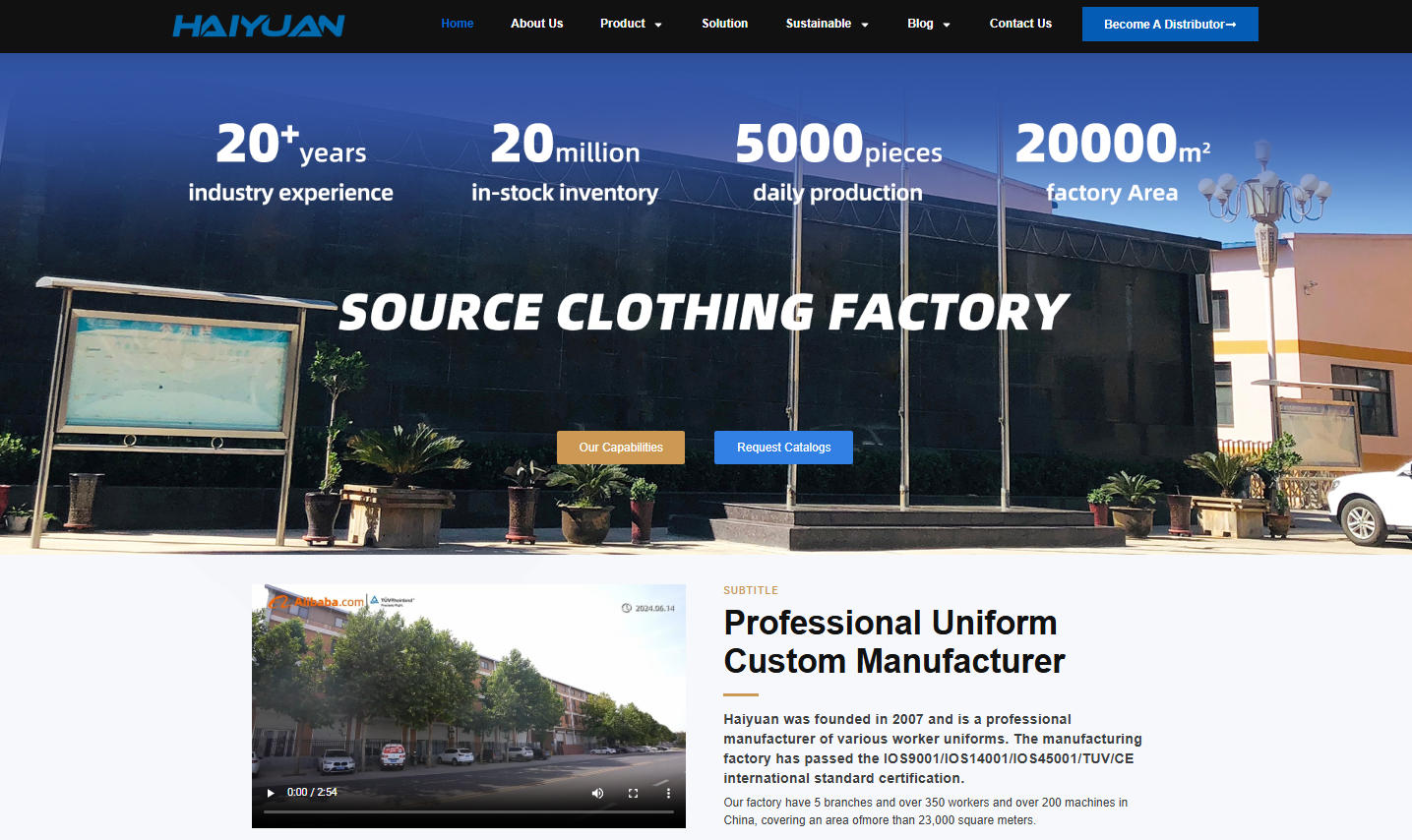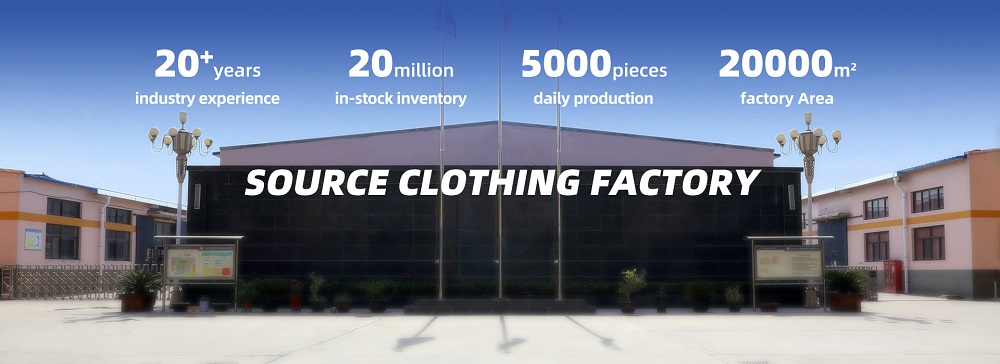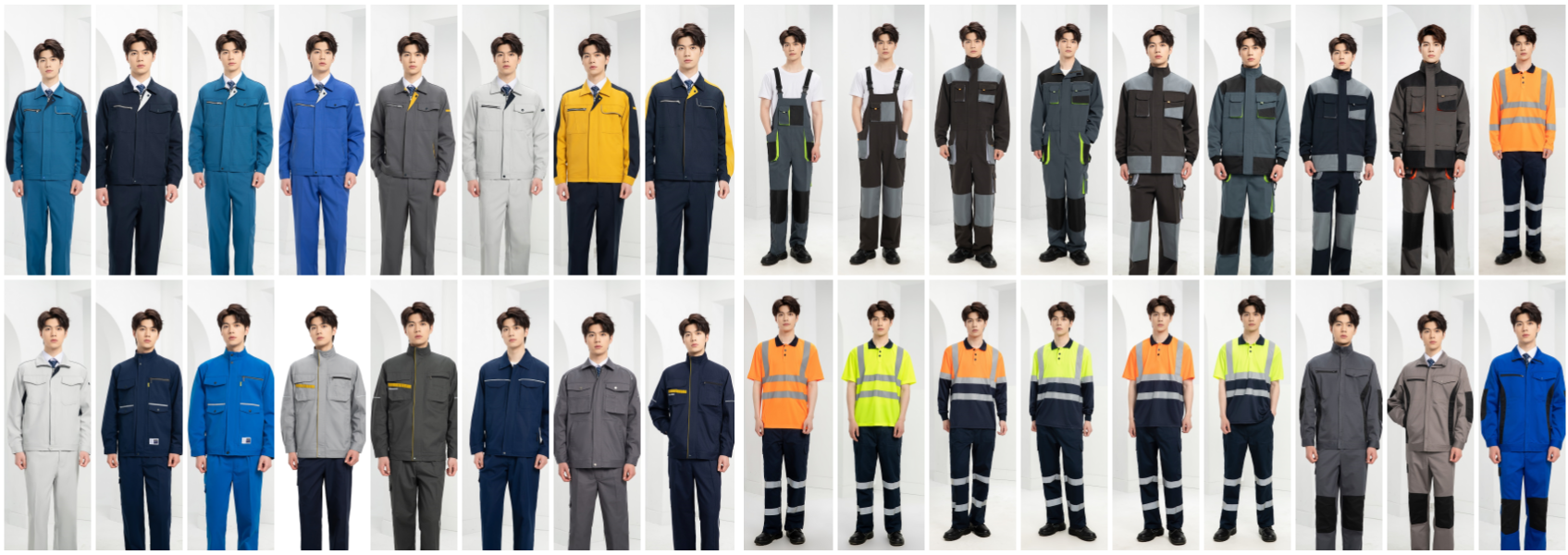As the world’s largest clothing producer and exporter, China has a large and mature supply chain system. From OEM for international luxury brands to serving rapidly emerging domestic designers, Chinese manufacturers’ capabilities cover all categories, scales, and processes. The following are representative companies and selection guides selected for you:
Ⅰ, Top comprehensive giant manufacturers (large scale, full range of products, mainly international customers)
-
Ningbo, Zhejiang:
-
Status: China’s largest apparel manufacturer by market value, known as the “Foxconn” of the industry.
-
Expertise: Knitwear giant (sports, leisure, underwear). Strong vertical integration capabilities (fabric research and development, weaving, dyeing and finishing, printing and embroidery, ready-made garments).
-
Core customers: Nike, Adidas, Uniqlo, Puma and other international first-line sports and leisure brands.
-
Advantages: leading technology, stable quality, reliable delivery, large-scale and efficient production, and large investment in sustainable development.
-
-
Hong Kong based, Mainland Factories:
-
Position: A leading diversified global apparel manufacturer.
-
Specialties: Casual wear, jeans, underwear, sweaters, sportswear. Wide range of categories.
-
Core customers: Gap, Uniqlo, H&M, Levi’s, Under Armour, L Brands (Victoria’s Secret), etc.
-
Advantages: Global layout (China, Vietnam, Cambodia, etc.), strong flexibility, rapid response capability, focus on innovation and sustainable development.
-
-
Esquel Group (Hong Kong based, Mainland Factories):
-
Position: A world-leading manufacturer of high-quality cotton shirts and apparel, a model of vertical integration.
-
Expertise: High-end cotton shirts and woven garments. Full control of the entire chain from cotton planting to garment manufacturing.
-
Core customers: Hugo Boss, Ralph Lauren, Lacoste, Brooks Brothers, Muji, etc.
-
Advantages: Ultimate quality, technological innovation (environmentally friendly fabrics, wrinkle-free technology), leader in sustainable development, and profound corporate culture.
-
Ⅱ, Category Champion Manufacturers (leading in a specific area)
-
Lu Thai Textile (Shandong):
-
Expertise: Global top manufacturer of high-end yarn-dyed fabrics and shirts.
-
Advantages: Top fabric R&D capabilities, sophisticated dyeing technology, excellent product quality, and vertical integration.
-
Core customers: Mainly supply high-end fabrics and shirts to international first-line menswear and luxury brands.
-
-
Jiangsu Cathay International Group (Jiangsu):
-
Expertise: A large comprehensive foreign trade group with many professional clothing supply chain companies under its umbrella.
-
Coverage: Men’s and women’s clothing, children’s clothing, outdoor, home textiles, etc. Strong supply chain integration capabilities.
-
Advantages: huge scale, complete product categories, rich customer resources and profound export experience.
-
-
Jifa Group (Shandong):
-
Expertise: A leading global manufacturer of knitwear, particularly in the areas of knitted fabrics, underwear and T-shirts.
-
Advantages: Leading knitting technology, complete industrial chain, strong R&D capabilities, and large production scale.
-
Core customers: Many well-known underwear, sports and leisure brands at home and abroad.
-
-
Bosideng International Holdings (mainly in Jiangsu):
-
Expertise: The world’s largest down jacket manufacturer (own brand + OEM).
-
Advantages: Absolute leader in the down jacket field, many technical patents (warmth, windproof and waterproof), strong design capabilities, and mature supply chain.
-
Core customers: In addition to our own brands, we also provide down jacket OEM services for international brands.
-
-
Virgin International (Hong Kong based, Mainland Factories – Shenzhen):
- Expertise: A global leading manufacturer of women’s underwear, especially skilled in complex molding and bonding technology.
- Strengths: Strong innovative design and R&D capabilities (seamless underwear, sports underwear), unique technology and craftsmanship, and in-depth cooperation with brands.
- Core customers: Victoria’s Secret, Adidas, Under Armour, Champion, etc.
- Shijiazhuang Haiyuan Labor Protection Products Co., Ltd.:
- Since 1996, Haiyuan Labor Protection Clothing Factory has been operating in the labor protection industry. At the beginning of its establishment, the warehouse and residence were only set up in a small 50 square meter bungalow in Nan’er Lane, Minsheng Street. Later, it gradually began to produce independently, from the initial two person production to multi person production. Haiyuan Labor Protection Clothing Factory has gradually developed its own blueprint. The factory has been continuously relocated and expanded from Honglou in Nan’er Lane, Minsheng Street, to Cangxing Street in Nan’er Ring Road, and then to Fangcun in Luancheng. Finally, it came to Yuanshi County Industrial Park and built a 20000 square meter factory building, deepening its manufacturing base and radiating globally.
- Along the way, it reflects Haiyuan people’s active exploration and unwillingness to be mediocre, their courage to take responsibility and strive, their professional persistence and pursuit of excellence. After 23 years, Haiyuan has been at the forefront of the labor protection tooling industry.
- With continuous growth, Haiyuan currently has nearly 600 employees, 400 machines, 5 subsidiaries, more than 260 people, and over 200 machines. The office is located in Building A, Tianzi Jiali Business Building, Dajing Street, Qiaoxi District, Shijiazhuang City, and the factory is located in Yuanshi County Equipment Manufacturing Base, Shijiazhuang City, covering an area of 30 acres and possessing strong productivity.
- Main products: acid and alkali resistant safety work clothes, anti-static safety work clothes, flame retardant safety work clothes, pure cotton work clothes, polyester cotton work clothes, denim work clothes, as well as various group work clothes such as polo shirts and assault jackets.
- Having registered trademarks such as Haiyuan, Henglu, Hengfu, Haiyuan Yishang, and Aisniu, our company’s products are sold well in various regions, forming a series of sales links and deeply loved and relied upon by new and old customers.
Ⅲ, Important regional industrial clusters and featured manufacturers
- Ningbo, Zhejiang: A strong city for men’s clothing and knitwear (brands such as Youngor and Shanshan also have strong manufacturing capabilities).
- Wenzhou, Zhejiang: A manufacturing base for men’s clothing and leather shoes with a mature industrial chain.
- Dongguan, Guangdong: Famous for sweaters (wool knitting) all over the world, with a complete industrial chain.
- Zhongshan, Guangdong: An important production base for casual wear and denim.
- Quanzhou/Shishi, Fujian: An important cluster of sports shoes, men’s clothing, and casual pants (such as the supply chain of brands such as Anta and Xtep).
- Qingdao/Jimo, Shandong: An important base for knitwear (Jimo) and outdoor clothing.
- Changshu, Jiangsu: An important market cluster for down jackets and autumn and winter clothing.
- Emerging forces: Manufacturers focusing on small orders, quick response, and flexible supply chains (especially in Guangzhou, Hangzhou, Shenzhen, etc.), serving e-commerce and independent designer brands.
How to choose the “best” manufacturer? A practical guide
“Best” is relative, the key is to match your needs:
1.Identify your needs:
- Product categories: Knitting? Woven? Down? Denim? Underwear? Sportswear?
- Order size: Large quantity (10,000 pieces)? Small and medium quantity (1,000 pieces)? Small order with quick response (100 pieces)?
- Quality requirements: Luxury/high-end? Mid-to-high-end? Fast fashion/basic?
- Price range: What is the target cost?
- Process complexity: Do you need special fabrics, complex printing and embroidery, or difficult sewing?
- Delivery time: How strict are the delivery requirements? Do you need quick response capabilities?
- Additional services: Do you need ODM (design and development)? Do you need one-stop services such as packaging and logistics?
- Certification requirements: Do you need GRS (recycled materials), BSCI (social responsibility), OEKO-TEX (environmental protection) and other certifications?
2.Find potential suppliers:
- Industry exhibitions: China International Fashion and Accessories Fair (CHIC), Canton Fair, Shenzhen Fashion Fair, Intertextile, etc. are the best platforms to contact high-quality factories.
- Professional B2B platforms: Alibaba International Station/1688 (need to be carefully screened), Global Sources, specific industry platforms.
- Industry associations and chambers of commerce: China National Textile and Apparel Council, local clothing associations.
- Supply chain service companies/agents: They have factory resource libraries and factory inspection capabilities.
- Factory field visits/factory inspections: Vital! Audit the factory’s equipment, management, technology, quality system, environmental protection and social responsibility (ESG) performance in person or by entrusting a third party.
3.Evaluation and screening:
- Matching degree: Does the factory’s core strengths match your core needs?
- Professional ability: Does it have stable experience and successful cases in producing products like yours? Request to see samples and visit the production line.
- Quality system: Is there a complete quality control process (incoming materials, production, final inspection)?
- Communication efficiency: Is the communication smooth and timely? How is the response speed?
- Willingness to cooperate and flexibility: Is the factory interested in the size of your order? Is it willing to cooperate with your specific requirements?
- Compliance and transparency: Does the factory meet the standards in terms of environmental protection, labor rights, and business ethics? Is the price structure clear and transparent?
- Minimum order quantity (MOQ): Is it within your acceptable range?
- Capacity and delivery time: Can it meet your order quantity and time requirements? How is the capacity saturation?
Quotation: On the premise of meeting quality requirements, comprehensively compare prices (not only unit prices, but also potential risk costs).
-
Building a successful partnership:
- Clear communication: Provide detailed and accurate technical documents (Tech Pack), sample requirements and quality standards.
- Rigorous contracts: Clearly define product specifications, prices, delivery dates, payment methods, quality standards and inspection procedures, liability for breach of contract, etc.
- Process monitoring: Confirm pre-production samples before mass production, arrange mid-term inspection (DPI) during production, and conduct final inspection (FRI) before shipment.
- Mutual respect and understanding: Build trust, respect the professionalism of manufacturers, and understand reasonable production cycles and costs.
- Long-term perspective: Treat excellent suppliers as strategic partners and grow together.
Important Trends and Considerations
-
Transfer to Southeast Asia: In order to avoid trade risks and reduce costs, some large manufacturers have transferred part of their production capacity to Vietnam, Cambodia, Bangladesh and other places. However, this does not mean the decline of Chinese manufacturing, but rather an upgrading and transformation.
-
Upgrading of Made in China: China is transforming from the “world factory” to the “core of the world supply chain”. Its advantages are:
-
Complete and efficient industrial chain: complete upstream and downstream supporting facilities and fast response speed.
-
Technological upgrading and automation: Leading companies have made huge investments in smart manufacturing and digitalization.
-
Strong R&D and design capabilities: More and more factories provide ODM and even original design services.
-
The rise of flexible supply chains: meeting market demands for small batches, personalization, and rapid iteration.
-
Sustainable development: Leading companies are increasing their investments in environmentally friendly materials, energy conservation and emission reduction, and social responsibility.
-
-
Demand for small orders and quick response: The rise of e-commerce and DTC brands has created a huge demand for small-batch, quick-response manufacturing services. China has significant advantages in this regard (especially in Guangdong, Zhejiang and other places).
Summarize
China has the world’s top, most comprehensive and most dynamic clothing manufacturing ecosystem. The key to finding the “best” manufacturer is to accurately define your own needs and find the best partner for you in specific categories, scale, quality, service and price range through in-depth research and field verification. Whether it is Esquel and Lutai, which pursue the ultimate quality and innovation, or Shenzhou and Jingyuan, which are scale efficiency and reliability, or champions in the niche fields, such as Jifa and Virgin, or high-quality factories in regional clusters and emerging flexible supply chain service providers, China can provide world-class solutions. Successful cooperation begins with clear needs, rigorous screening and a partnership based on mutual respect and communication.




